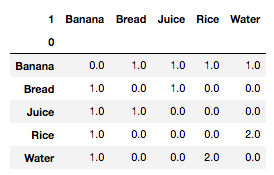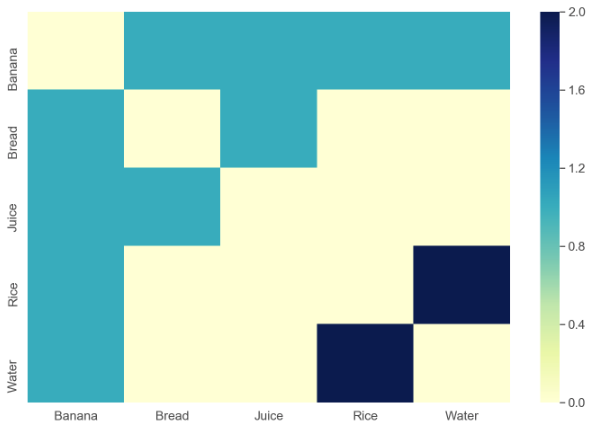You can do this in python with the seaborn visualization library (built on top of matplotlib).
data = [
['Banana', 'Water', 'Rice'],
['Rice', 'Water'],
['Bread', 'Banana', 'Juice'],
]
# Pull out combinations
from itertools import combinations
data_pairs = []
for d in data:
data_pairs += [list(sorted(x)) + [1] for x in combinations(d, 2)]
# Add reverse as well (this will mirror the heatmap)
data_pairs += [list(sorted(x))[::-1] + [1] for x in combinations(d, 2)]
# Shape into dataframe
import pandas as pd
df = pd.DataFrame(data_pairs)
df_zeros = pd.DataFrame([list(x) + [0] for x in combinations(df[[0, 1]].values.flatten(), 2)])
df = pd.concat((df, df_zeros))
df = df.groupby([0, 1])[2].sum().reset_index().pivot(0, 1, 2).fillna(0)
import seaborn as sns
from matplotlib.pyplot import plt
sns.heatmap(df, cmap='YlGnBu')
plt.show()
The final dataframe df looks like this:
and the resulting visualization is:




